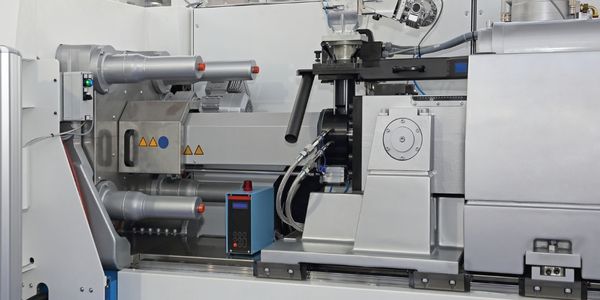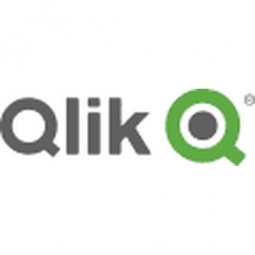Download PDF
QlikView Gives Siemens Turbomachinery
Technology Category
- Analytics & Modeling - Real Time Analytics
Use Cases
- Manufacturing System Automation
- Predictive Maintenance
Services
- System Integration
- Training
The Challenge
Siemens Turbomachinery Equipment was facing challenges with their existing data analysis tool, Microsoft Excel, which was too static with limited performance and high administrative costs for data assessment. The assessments were only possible by calling in the IT department. The company wanted to improve the transparency of production, taking due account of the current manufacturing information available. They also aimed to achieve a significant reduction in the costs of producing key data and analyses. The firm’s various production processes accumulate between 200,000 and 500,000 sets of such data. Siemens Turbomachinery Equipment also wanted to make it possible for the various specialist units to call up and analyse key data without help from the IT department.
About The Customer
Siemens Turbomachinery Equipment in Germany designs, manufactures, and sells turbo machines—turbines, compressors, and ventilators. The products are used in a variety of industries ranging from sewage treatment to installing technical equipment in construction projects. The wholly-owned subsidiary of Siemens AG has a workforce of around 600 at its plants in Frankenthal and Leipzig. The company is known for its high level of customer satisfaction, which is largely due to its ability to always meet delivery deadlines. This requires precise planning and controlling of production—teams at the various manufacturing units must get the materials on time. So as not to jeopardise delivery deadlines, it is just as vital for finished components to be forwarded in plenty of time to the appropriate mechanical production and assembly units.
The Solution
Siemens Turbomachinery Equipment decided to implement QlikView to screen and analyse key data from FELIOS. This expansion module offers 30 key data processing options specially pre-defined for the manufacturing industry as a starter pack, which can then be configured to the customer’s specific requirements. QlikView was to be used for the presentation and assessment of this key data. After a detailed cost/use analysis, it was soon clear that Siemens had found the ideal solution for its various needs. Siemens Turbomachinery Equipment and INFORM worked jointly on the project and within just 12 weeks the whole operation was complete. This covered all planning, the integration of a QlikView Server as a new scalable software platform, the implementation of the software, installing the first QlikView applications, and staff training.
Operational Impact
Quantitative Benefit
Related Case Studies.

Case Study
Remote Monitoring & Predictive Maintenance App for a Solar Energy System
The maintenance & tracking of various modules was an overhead for the customer due to the huge labor costs involved. Being an advanced solar solutions provider, they wanted to ensure early detection of issues and provide the best-in-class customer experience. Hence they wanted to automate the whole process.

Case Study
Predictive Maintenance for Industrial Chillers
For global leaders in the industrial chiller manufacturing, reliability of the entire production process is of the utmost importance. Chillers are refrigeration systems that produce ice water to provide cooling for a process or industrial application. One of those leaders sought a way to respond to asset performance issues, even before they occur. The intelligence to guarantee maximum reliability of cooling devices is embedded (pre-alarming). A pre-alarming phase means that the cooling device still works, but symptoms may appear, telling manufacturers that a failure is likely to occur in the near future. Chillers who are not internet connected at that moment, provide little insight in this pre-alarming phase.

Case Study
Plastic Spoons Case study: Injection Moulding
In order to meet customer expectations by supplying a wide variety of packaging units, from 36 to 1000 spoons per package, a new production and packaging line needed to be built. DeSter wanted to achieve higher production capacity, lower cycle time and a high degree of operator friendliness with this new production line.

Case Study
Robot Saves Money and Time for US Custom Molding Company
Injection Technology (Itech) is a custom molder for a variety of clients that require precision plastic parts for such products as electric meter covers, dental appliance cases and spools. With 95 employees operating 23 molding machines in a 30,000 square foot plant, Itech wanted to reduce man hours and increase efficiency.

Case Study
Aircraft Predictive Maintenance and Workflow Optimization
First, aircraft manufacturer have trouble monitoring the health of aircraft systems with health prognostics and deliver predictive maintenance insights. Second, aircraft manufacturer wants a solution that can provide an in-context advisory and align job assignments to match technician experience and expertise.

Case Study
Integral Plant Maintenance
Mercedes-Benz and his partner GAZ chose Siemens to be its maintenance partner at a new engine plant in Yaroslavl, Russia. The new plant offers a capacity to manufacture diesel engines for the Russian market, for locally produced Sprinter Classic. In addition to engines for the local market, the Yaroslavl plant will also produce spare parts. Mercedes-Benz Russia and his partner needed a service partner in order to ensure the operation of these lines in a maintenance partnership arrangement. The challenges included coordinating the entire maintenance management operation, in particular inspections, corrective and predictive maintenance activities, and the optimizing spare parts management. Siemens developed a customized maintenance solution that includes all electronic and mechanical maintenance activities (Integral Plant Maintenance).





